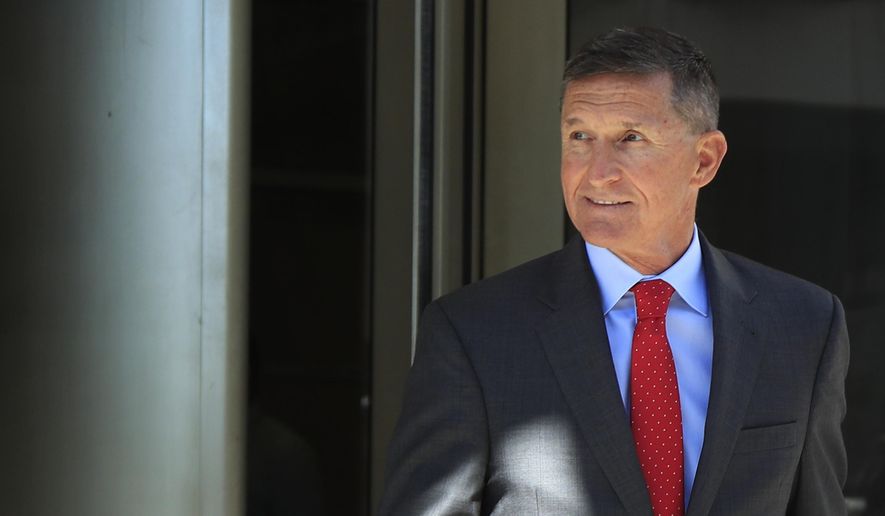FALLS CHURCH, Va. (AP) - Prosecutors won’t call former national security adviser Michael Flynn to testify at the upcoming trial of his one-time business partner, and now consider him to be an unindicted co-conspirator.
Court documents unsealed Tuesday in federal court in Alexandria show prosecutors changed their minds about putting Flynn on the stand at next week’s trial of Bijan Kian .
Flynn’s lawyers have objected to the about-face, and say prosecutors wanted him to take the stand and admit things that weren’t true. They say the change may also cause problems for Flynn at his own upcoming sentencing, which was postponed so the judge could take into account Flynn’s level of cooperation at the Kian trial.
Flynn’s lawyer, Jesse Binnall, pointed out that prosecutors said explicitly at a June 13 hearing that they did not consider Flynn to be a co-conspirator in the case. Binnall said it’s wrong for the government to reverse that assessment simply because they don’t find his testimony to be useful.
“(T)he government’s reversal also sounds an alarm of potential retaliation and may have ramifications for Mr. Flynn beyond this trial,” Binnall wrote.
Kian is charged with illegally acting as a foreign agent. Prosecutors say Kian was acting at the Turkish government’s behest when he persuaded Flynn to write a November 2016 op-ed piece critical of Fethullah Gulen, a cleric living in the U.S. who is a nemesis of Turkish President Recep Tayyip Erdogan.
The legal advice Flynn and Kian received about whether they were required to register as foreign agents - and its admissibility at trial - has been a major issue in pretrial proceedings.
After the op-ed piece ran, government lawyers contacted Flynn and Kian’s joint business, Flynn Intel Group, and questioned whether they needed to register as foreign agents. Flynn Intel Group ultimately registered under the Foreign Agents Registration Act. But the indictment alleges that Kian knowingly made false statements to his lawyers and on the FARA registration form.
Binnall says that when Flynn made the FARA application, he thought at the time he was providing accurate information. Binnall said prosecutors wanted Flynn to admit that he knew the statements were false at the time he made them.
“Mr. Flynn cannot give that testimony because it is not true,” Binnall said.
Flynn pleaded guilty in December 2017 to lying about his contacts with Russians in the months between Donald Trump’s election and his inauguration in a separate case brought by then-special counsel Robert Mueller. Flynn had been an outspoken foreign policy adviser to Trump during the 2016 campaign and served briefly in the administration as national security adviser before questions about his dealings with Russia forced him to resign.
On Tuesday, the federal judge in Washington who will sentence Flynn issued an order requiring the government to explain by Wednesday how the developments in Kian’s case might affect Flynn’s case. The Judge, Emmet Sullivan, ordered Flynn’s lawyers to file their own response by Thursday.
Kian’s lawyers, for their part, say the case against their client is built largely on information provided by Flynn and the case is weak because Flynn can’t be trusted to tell the truth.
“The government has belatedly realized what should have been clear all along - Flynn is not to be believed,” Kian’s lawyers wrote.
___
Associated Press writer Eric Tucker contributed to this report from Washington.




Please read our comment policy before commenting.